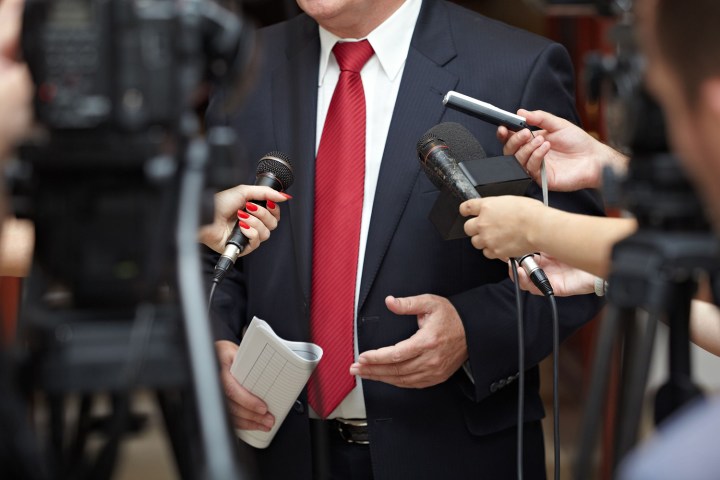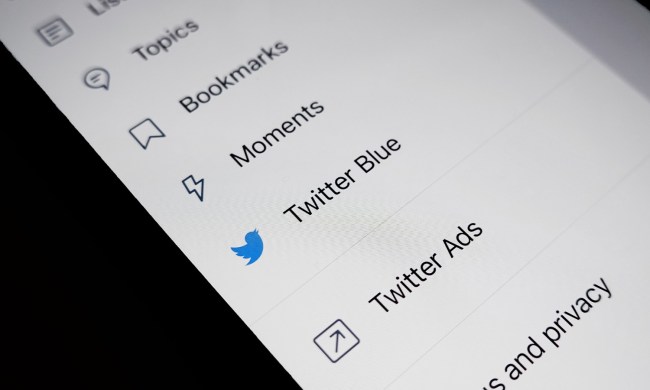
The amount of Americans following political figures on social media has more than doubled in recent years. So, of course, the number of political figures using social media has also grown.But it isn’t just U.S. politicians who are getting social. Leaders from other nations are also leveraging the medium’s power and influence. With all these high-ranking officials, social media can be a great source for gathering political news and information, but it can also be a quagmire to navigate.
Thankfully, we’ve narrowed down the list to the 33 political figures you should follow on social media. Whether you love them or hate them, these politicians either helm some of the most powerful countries in the world, frequent news headlines, wield intense amounts of influence, or possess some level of social media savvy – or some combination of all four. Consider this your cheat sheet, not just to American politics and the 2016 presidential campaign, but to foreign politics and world issues. Now, time to break out the pocket translator.
World leaders to follow on social media
Narendra Modi, Prime Minister of India

Social media is old hat to the leader of the world’s largest democracy. Prime Minister Narendra Modi has tweeted more 10,000 times to his 18-million followers since he first joined Twitter in 2009, and moreover, has done so in at least 13 different languages. However, he mostly uses the official languages of India – Hindi and English – to communicate with his followers about everything, from his five-country tour of Central Asia to “Make In India” week.
Vladimir Putin, President of Russia

Whether it’s the annexation of Crimea, Russia’s involvement in the Syrian Civil War, or the band Pussy Riot‘s trial, Vladimir Putin always seems to be making headlines (and usually not the good kind). While his Twitter feed is mostly photos of him meeting with other leaders, there are a few priceless tweets like this one for International Women’s Day.
Muhammadu Buhari, President of Nigeria

A former general, Nigerian President Muhammadu Buhari is likely his nation’s best hope for defeating Boko Haram, a terrorist group associated with Islamic State that often kidnaps women and children in Nigeria, Cameroon, Niger, and Chad. Buhari has also vowed to root out corruption, starting with the state-owned company, Nigerian National Petroleum Corporation, which reportedly provides the government with about 70 percent of its revenue.
Alexis Tsipras, Prime Minister of Greece

As the youngest prime minister of Greece in modern Greek history, Alexis Tsipras has the daunting and unenviable task of trying to solve Greece’s economic crisis. He’s also undeniably cool — riding around Athens on a motorbike, bypassing his tie, and refusing to take a traditional religious oath at his inauguration because it’s against his atheist principles. He’s also a political renegade, putting Greece’s future in the eurozone on the line in order to try to save his country from austerity measures.
Haider al-Abadi, Prime Minister of Iraq

As the leader of a country with which U.S. relations have historically been strained, Haider al-Abadi is seen by many as a the beginning of a new era in Iraq. The Western-educated Prime Minister sought international financial help in January 2016 after oil prices dropped, leaving him with significantly less revenue to continue fighting the Islamic State.
Joko Widodo, President of Indonesia

A man of the people, Jokowi (as he is commonly known) is the first Indonesian president without a military background and not from one of the country’s prominent political families. Many see his election to the presidency as a mark of a more democratic era in Indonesian politics. The president of Southeast Asia’s largest economy also just recently announced that he would be opening up the island nation to foreign investors.
Benjamin Netanyahu, Prime Minister of Israel

The Israel-United States relationship has recently become contentious. As the leader of a highly fraught region of the world, Bibi (his nickname) has come under fire from U.N. Secretary-General Ban Ki-moon, the E.U., the Swedish foreign minister, and the U.S. ambassador to Israel as the last round of peace talks between Palestine and Israel broke down in April 2014 and violence surged in the region. However, Netanyahu has questioned the United Nation’s neutrality and Obama’s understanding of the Middle East.
Beji Caid Essebsi, President of Tunisia

Essebsi represents the first freely and directly elected president of Tunisia, following the Tunisian Revolution. The country is often hailed as the greatest success of the Arab Spring, however, Essebsi’s presidency has not been without hiccups. Some fear that, despite the free elections now in place, Essebsi still quietly supports a monarchical culture.
Marine Le Pen, President of the National Front

This far-right French politician is gunning for the presidential seat in the upcoming 2017 elections. Depending on who you ask, she is either the face of European bigotry or the harbinger of a new European political alignment. Either way, the political repercussions — should she be elected — will be felt as far as the United States.
Mohammad Javad Zarif, Foreign Minister of Islamic Republic of Iran

Many see Zarif as opening up diplomatic relations between the United States and Iran, in cooperation with U.S. Secretary of State John Kerry. The two were instrumental in bringing the Iran nuclear deal, one of the first diplomatic acts between the two countries in roughly 30 years, to fruition. Many see the career diplomat as capable, jovial, and highly interested in bringing Iran to the international community.
Shinzō Abe, Prime Minister of Japan

The youngest prime minister of Japan since WWII also might be the country’s most militaristic since. The Japanese leader was able to push through a controversial security bill that would allow Japan’s tightly restricted military to intervene oversees in support of its allies. Thousands of Japanese protested the bill, saying it was counter to Japan’s pacifist constitution. He’s also come under fire for his “Abenomics” ineffectiveness, his measures for strengthening Japan’s economy seeming to fall flat.
Abdel Fattah el-Sisi, President of Egypt

The enigmatic, former army chief ascended to presidency buoyed by a wave a popularity after he effectively delivered the coup de grace to then-president Mohamed Morsi after the protests of summer 2013. Sisi’s presidency has been controversial, though, with supporters of Morsi feeling that Sisi crushed the first elected president of Egypt for his own gain. Also, international concern has grown over the rise in the number of journalists jailed in Egypt — a figure which has, according to some watchdog groups, doubled since Sisi took office.
Enrique Peña Nieto, President of Mexico

The 57th president of Mexico entered office amidst accusations of electoral fraud and many public protests. The leader of the United States’ southern neighbor has also been involved in a scandal revolving the expedition of his wife’s divorce from her previous husband, along with public contractor kick-backs. Needless to say, his popularity has remained low as crime rates have soared.
Beata Szydło, Prime Minister of Poland

As the “fresh, moderate face of the Polish right,” Beata Szydło rose from relative political obscurity to become Poland’s prime minister after successfully running Andrzej Duda’s presidential campaign and helping him to oust incumbent Bronisław Komorowski. However, her Law and Justice party’s government has put into place several laws that have raised some eyebrows among European Commission investigators probing into their legality. She is also proving a tough cookie regarding the refugee crisis, often dodging the question and exaggerating numbers to try to skirt her country’s accountability.
Queen Elizabeth II, Queen of the United Kingdom

The world’s oldest-serving sovereign and Britain’s longest-serving monarch, Queen Elizabeth II is known for her love of thoroughbreds and corgis. She accomplished the successful transition from the British Empire to the Commonwealth of Nations during her more than six decades as queen, while approving changes to succession laws that allow first-born daughters to take precedence over younger-born brothers. She has also visited more than 100 different countries, and was the first reigning British sovereign to visit both Saudi Arabia and China.
Bashar al-Assad, President of Syria

When protests began against his government in 2011, Assad, unlike his counterparts in Tunisia and Egypt, chose to crush dissenters. According to some sources, the resulting conflicts have left more than 250,000 dead, many of which are civilians. In fact, in 2015, it was reported by various sources that Assad-regime inflicted casualties outnumbered those of ISIS in Syria.
Jetsun Pema, Queen of Bhutan

The young queen of Bhutan has noble lineage but is the daughter of an airline pilot. Many Bhutanese feel she really influences her husband, who is known for introducing democracy to Bhutan in 2008 and for inviting common citizens to his home to listen to their concerns. Admired by the Bhutanese for her beauty and grace, Queen Jetsun’s Instagram account has many photos of the couple publicly displaying affection — something new for citizens to see. However, it’s caused many young Bhutanese couples to follow suit, holding hands in public like the royal couple. As queen of the country that invented Gross National Happiness, Queen Jetsun champions environmental issues as well as working closely with Ability Bhutan Society, an organization that works with special needs children.
Donald Trump, President of the United States

Donald J. Trump, an American businessman and television personality, was elected as the 45th president of the United States. During his campaign, he used the tactic of channeling voter frustration against all ills, and surprised his own party leaders and many by becoming the Republican front-runner. Then again, maybe it’s not surprising that a reality TV show character is adept at entertaining the American public and creating some voter conviction that he’s a viable candidate and not just a spectacle. Although the U.S. president has its own social media accounts, Trump prefers to use his original handles, particularly on Twitter.


